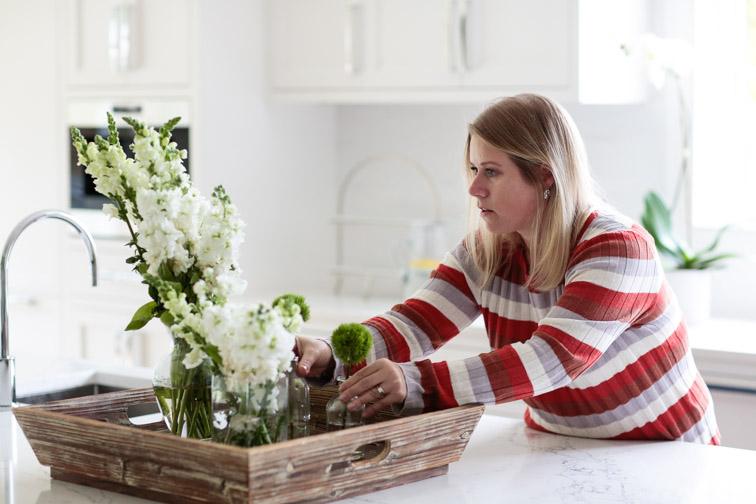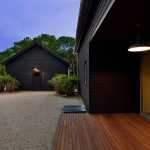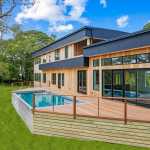Laura Maresca-Sanatore says she became an interior designer on a “break” from health care: her previous career was as a nurse. But, she says, her business degree comes in handy now when managing her business, LMS Design. Originally from West Islip, Maresca-Sanatore lives in Hampton Bays with her husband and her son, who turns four today.
So how did a girl from West Islip wind up in the Hamptons?
I got to know the area because of friends, and basically, I just stayed!
Have you always been a designer?
I went to school for nursing and I spent a good ten years in health care. I have a bachelor’s degree in hospital administration and health care management, and I went back and started my MBA. The designer thing is just a fluke; it happened while I was on a hiatus from health care. I just started working for an interior designer in the Hamptons, and stayed there for 12 years, getting a fabulous education in design.
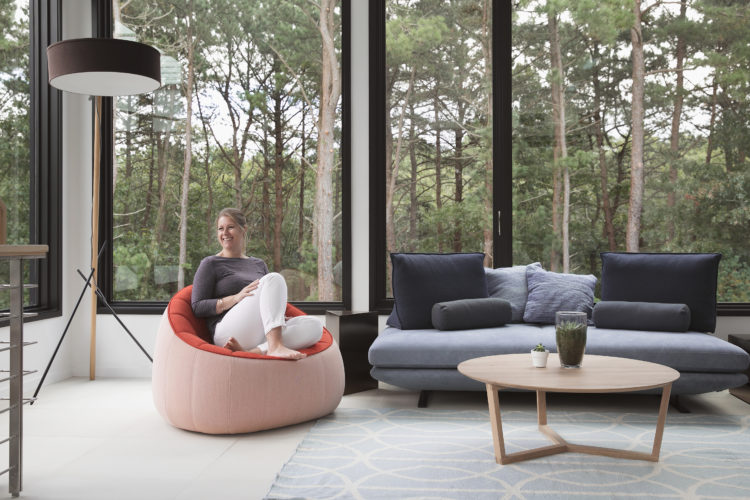
Do you mostly specialize in kitchens and baths or just general design work?
Kind of. When I worked for that company, they specialize in kitchen and bath design. So that’s kind of all I did. But to be honest, this entire year I think I’ve done very few kitchens and baths a significant amount of straight up interior design. So, it’s been a lot of, “my client bought a house and they need to furnish it and want it furnished by the summer.”
I’ve been doing a lot of space planning, too. I have clients who want to finish a basement, but they don’t know how to make an open space turn into what they want. I’ve been doing a lot of whole house renovations, so kitchens, a whole bunch of bathrooms and a lot of interior design. It’s more and more inclusive for me, over the past year; I’ve been able to give a holistic approach to the houses.
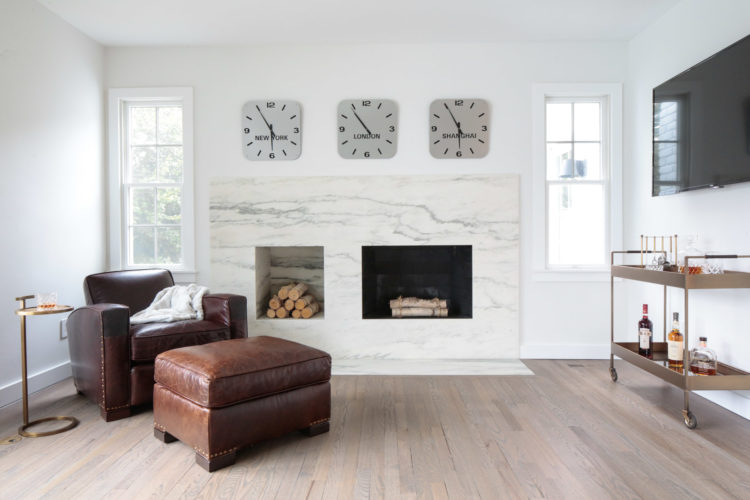
How would you characterize your style?
I’d call it transitional. I lean a little bit more on the modern side, but even when I do a traditional house, it has traditional elements, but it leans to the less-is-more side. I’m not going to do an over-decorated space. I don’t want spaces to feel busy and heavy. I always prefer that timeless look. And I always feel like approaching a space with a less-is-more attitude give me that.
Are most of the houses you do people’s summer weekend houses, or do you decorate as much for all year-rounders?
All the above.
Do you approach things differently for a summer weekend place than you would for a full-time home?
A lot of the families that I’ve been working with are coming out all year round. A lot of them come out on the weekends: they’re young couples with young families. Because I have a son myself, I can relate to their needs. When they say they need a play area for their kid, I understand it. Or they say they need a couch with a fabric they can clean because their kid’s going to throw up on it. I just had that conversation with a client!
Whether they’re living out here part time or full time it needs to function the same. It must work for them, so the key components are going to be the same regardless of how much time they spend in the house. My design is based on a level of understanding of how they live and what their needs are for the home.
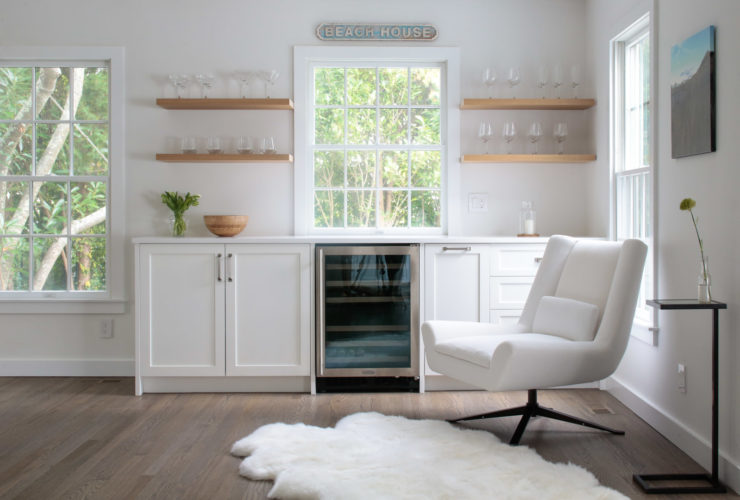
What do you think is next for interior design in the Hamptons? It’s been very pale for a long time. Do you think the all-white interior is on its way out?
Most of my clients say to me I don’t want my house to feel like every other house, I want it to be mine and I want to have color. People want color. They like color. Maybe the kitchen cabinets are still white, because you want that to be about a relatively neutral palette, but then the island is a different color. I’m popping color into some of these spaces where in the past everyone wanted a monochromatic feel. I think that people are stepping out of the typical Hamptons style and realizing that they want their own style and they want it to be a little different and a little edgy with a little color.
I’ve also noted that the clients are extremely collaborative, and I love that. I love when my client has an opinion and says, “I know what I want, this is what I want.” Clients have Houzz and Pinterest and the Internet, and that’s great, they’re educated. The way that I see it, they’re giving me their vision and my job is just trying to help them along the path of getting to the end goal.
It’s a lot different than what it used to be. I like it when people want to be part of the process. My job is to make fun. I know that some interior designers don’t like to work that way, but people should have the right to have a vision and know what they want, and it just makes life so much easier.
If you’re a well-known designer, like Steven Gambrel for instance, people go to him knowing that he has a certain style and that’s what they want.
There’s a place for that and it’s a beautiful place. You make that name for yourself as interior designer and you’ve won. But I’m kind of new and I like the freshness of not doing the same thing over and over again. I like that each client has something a little different, but I don’t always have the same thing. It’s your house, it’s your style.
What are the three key things that you think that any family house in the Hamptons needs to have? Besides a comfy, cleanable sofa.
It has to be a really functional kitchen. A lot of people entertain especially in the summer, so having a kitchen that really functions that works well for the family is important. It needs to look pretty but it’s got to actually work at a functional level and have everything they need in it. Another thing would be an outside entertaining space and the ability for the house to become an indoor/outdoor entertaining space.
A lot of my clients have super-modern apartments in the city, and they want to come out here and feel comfortable, and they want their guests to come out and feel comfortable. Casual is the right feeling in the Hamptons.

